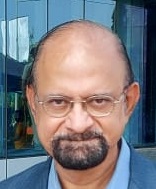|
|
||
|
Pro Tools
FILMFESTIVALS | 24/7 world wide coverageWelcome ! Enjoy the best of both worlds: Film & Festival News, exploring the best of the film festivals community. Launched in 1995, relentlessly connecting films to festivals, documenting and promoting festivals worldwide. Working on an upgrade soon. For collaboration, editorial contributions, or publicity, please send us an email here. User login |
Ripples, Review: Subtly, gently
Ripples, Review: Subtly, gently Ripples is a film about Muslim women of Xinjiang, who now live in Yiwu, and how they miss their homeland. While China is universally acknowledged as a military and economic super-power, prejudices and misconceptions about the country’s internal matters abound. One such contentious issue is the plight of the Uyghur (Uighur) Muslims, who form a large part of the population of its Xinjiang province, in the north-west, an autonomous region, like Tibet. It is bordered by the Chinese provinces of Qinghai and Gansu to the east, Tibet to the south, Afghanistan and Kashmir to the southwest, Kyrgyzstan and Tajikistan to the west, Kazakhstan to the northwest, Russia to the north, and Mongolia to the northeast. It is China’s largest political unit. Its capital is at Ürümqi (Wulumuqi). Spread over an area of 635,900 square miles (1,646,900 square km), it has a population of 21,813,334, according to the 2010 census, which includes a significant number of Muslims. We peek into the lives of Uighur women, who are self-made and successful. They are enterprising and compassionate too. Garments, restaurant, shipping, WeChat - they are into a multitude of professions and businesses. Except for one, we find them raising children single-handedly, while making their livelihood. Concurrently, the film highlights the plight of the cotton farmers in general and the garment industry in particular, because some countries have imposed a ban on cotton from Xinjiang, alleging the use in bonded labour in the plantations. We see the snow-clad fields and the use of machines to pluck the crop, as a testimony to the non-use of any labour, let alone bonded labour, in the plantations. Incidentally, China is the biggest grower of cotton in the world, the 2020-21 figures standing at 6,423 thousand metric tonnes, putting it ahead of India. Unfolding at a leisurely pace, the 28-minute film gives the feel of a concealed camera capturing almost all significant activities, over a few days, in the lives of the women protagonists, including shopping at a vegetable market, kneading dough, a birthday celebration, ultrasound examination of a foetus, a woman’s phone conversation with her father, her concern for her Afghan husband, who is deeply perturbed at the developments in Afghanistan. The language used is mostly ethnic, with some English. On occasion, you hear words like “kujah ast?”, which is Persian for “where are you/where is it?” Of course, there are sub-titles, which, thankfully, do not change rapidly. But then, the film itself is not a rapid cutting experience. French director Benoît Lelièvere (Reprise d’etude, There, Le Miroir d’Alice) who is also a writer and cinematographer, shows a deep insight into the working lives, and the psyche, of so many women, and beautifully contrasts their lives, only to convince us that we all share the same humane feelings. No writer is credited, so I presume, and it appears, that the film was largely shot using real characters and real-life conversations. Benoit raises very pertinent issues, without resorting to lecturing or propaganda. Having Huaqing Jin (Shame, Blossom with Tears, Lament of Yumen, Splendid Land – co-directed) as co-director must have been of great advantage, in getting a better assimilation of the people and the issues into a coherent holistic venture. Some marvellous panoramic outdoor and sky-shots provide breath-taking views between the largely indoors shot film, courtesy Director of Photography, Jimmy Buffet. Editor Willie Nelson does a competent job of editing, using fade-outs and fade-ins judiciously. Sound is mostly natural, and Jacqueline Martin keeps it a conversational level. There is a lot of music, often the guitar, and even a popular western song, in its instrumental version, but music never dominates the proceedings. Ripples is a silky, velvety film that raises some very bitter issues that are causing conflict within some countries and between countries. It does so subtly, gently, unobtrusively - and creates delicate ripples. Rating: *** ½ 10.11.2021 | Siraj Syed's blog Cat. : Afghanistan Benoît Lelièvere Chinese Gansu Huaqing Jin Jacqueline Martin Jimmy Buffet kashmir Kazakhstan Kyrgyzstan Mongolia muslim Qinghai Russia Tajikistan tibet Uighur Ürümqi Uyghur WeChat Willie Nelson Wulumuqi Xinjiang Shorts FILM
|
LinksThe Bulletin Board > The Bulletin Board Blog Following News Interview with IFTA Chairman (AFM)
Interview with Cannes Marche du Film Director
Filmfestivals.com dailies live coverage from > Live from India
Useful links for the indies: > Big files transfer
+ SUBSCRIBE to the weekly Newsletter Deals+ Special offers and discounts from filmfestivals.com Selected fun offers
> Bonus Casino
User imagesAbout Siraj Syed Syed Siraj Syed Siraj (Siraj Associates) Siraj Syed is a film-critic since 1970 and a Former President of the Freelance Film Journalists' Combine of India.He is the India Correspondent of FilmFestivals.com and a member of FIPRESCI, the international Federation of Film Critics, Munich, GermanySiraj Syed has contributed over 1,015 articles on cinema, international film festivals, conventions, exhibitions, etc., most recently, at IFFI (Goa), MIFF (Mumbai), MFF/MAMI (Mumbai) and CommunicAsia (Singapore). He often edits film festival daily bulletins.He is also an actor and a dubbing artiste. Further, he has been teaching media, acting and dubbing at over 30 institutes in India and Singapore, since 1984.View my profile Send me a message The EditorUser contributions |




























